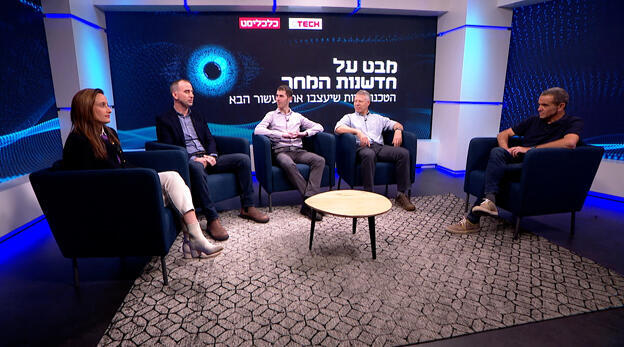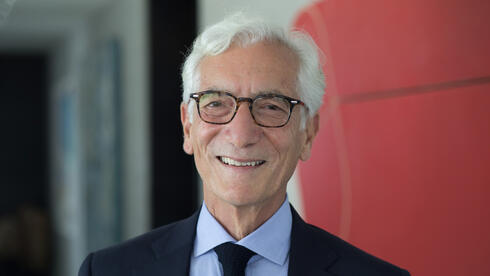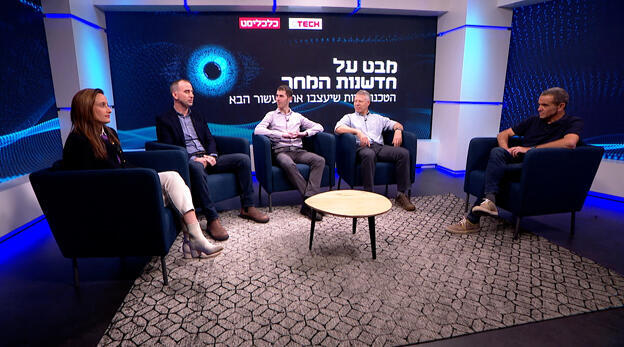
"There is a race to build the first useful quantum computer"
"Organizations are preparing for tomorrow. They develop software, run it on a relatively small scale, and when the moment comes, they will expand its use," added Nir Minerbi, CEO of Classiq Technologies, speaking on a panel with Gil Semo, VP of development at Quantum Source, Dr. Ruti Ben Shlomi, CEO of LightSolver, and Dr. Tomer Simon, chief scientist at Microsoft Israel’s R&D center
"We have reached the limit of our ability in classical computing," said Dr. Tomer Simon, chief scientist at Microsoft Israel’s R&D center, speaking during Calcalist's Innovation Week. "Israel is investing over $430 billion in quantum computing, and recently an additional $33 million was announced by the Innovation Authority." Also participating in the panel were Gil Semo, co-founder and VP of development at Quantum Source; Dr. Ruti Ben Shlomi, co-founder and CEO of LightSolver; and Nir Minerbi, co-founder and CEO of Classiq Technologies.
According to Simon, "Quantum computing is one of the most exciting fields to engage in today. The familiar world of Intel and AMD chips is binary. If we compare it to tossing a coin, it can be only heads or tails. Quantum computers know how to run both. While a computer is spinning in the air, it is both heads and tails. Imagine 100 coins flying through the air and all of them, all the time, are both. A normal computer goes coin-by-coin, while a quantum computer calculates them all together. This enables a significant acceleration of computing.
"Cracking the encryption that protects state secrets or our privacy takes a geological time frame, that is, a billion years, an unrealistic amount of time. For a quantum computer of a certain size, it can take 100 seconds."
"We are building the next generation of computers," said Ben Shlomi in reference to LightSolver's activities. "We are building a supercomputer based solely on lasers. It has no electronics at all, so it should solve difficult problems that today cannot be solved with significant speed. For example, the whole world is going in the direction of smart city networks and we would all like to sit in autonomous cars and enjoy the green wave. This is a difficult problem because the parameters are huge and a traditional computer cannot solve these problems. We have developed a new method for computing that tries to break the barrier of electronics and let light use its speed. Unlike quantum computers, our computer is small, which is an important advantage. Our solutions are available today."
Minerbi broke down Classiq's activities: "We are in a new computing world and, like any computing story, we need hardware and software. The hardware is built by the giants - Google, Microsoft, Intel, IBM, Amazon, governments. It's really an arms race, who will build the first useful quantum computer. Applications and software are our world. Classiq builds all layers of software, operating system, applications, and ultimately our users are Fortune 500 companies in fields such as pharma, aerospace, and finance that want to develop applications that will change the way they do business in the coming years. Already today there are quantum computers for which you can develop software and run applications through the cloud, but they are still on a relatively small scale, and do not offer an advantage. Organizations are preparing for tomorrow. They develop software, run it on a relatively small scale, and when the moment comes, they will expand its use."
Quantum Source has a different approach to the quantum world, as Semo explained: "We are developing a photonic quantum computer. The current generation of the quantum computer is noisy and reaches 400 qubits (the speed of quantum computers), and we want to develop a computer that can reach one million qubits and has the ability to solve problems that today cannot be solved. We are working on the hardware and in 2027 we will have our computer."
"Microsoft," said Simon, "entered the field as early as 2001, and there have been many breakthroughs. We develop hardware and software and all solutions with a broad ecosystem. There are 100 quantum computers available today, and there are ten such computers in our cloud. Microsoft's quantum effort goes beyond the company's laboratories."














